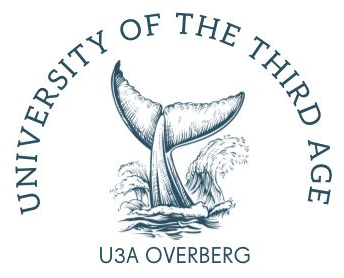During the late seventies, The Marine was allowed to run down after a succession of managers were unable to keep up the standards of its glorious past. Its Swiss-born owner Werner Hinder, who had purchased the hotel in 1967, was glad to sell it to David Rawdon in 1980.
David Rawdon (1924 – 2010) bought The Marine in a dilapidated condition for the reported sum of R210 000. He commented at the time: “It was very run down and was operating as a boarding house.” However, he had successfully renovated and redecorated old hotels before – Rawdon’s Hotel in Natal (1954), the Lanzerac Hotel in Stellenbosch (1958), The Lord Milner in Matjiesfontein (1968), and the Drostdy in Swellendam (1977). He spent four years planning and carrying out the renovations to The Marine.
Rawdon’s renovations at The Marine were comprehensive. The exterior of the building was not altered much, except for a curved wall that had been built on the south-west side which was squared off elegantly. But, inside, each bedroom was given a bathroom en-suite and several of the outbuildings and storerooms outside the dining room were demolished and a courtyard area built. An article in an architectural journal in April 1986 stated: “…almost the entire building was gutted, leaving the shell, and required structural walls… it involved more rebuilding than anticipated.”
On completion in 1985, the hotel boasted a sea-themed hallway; dining room; pub; billiard room; card room; conference room; heated indoor wineglass-shape pool; a Jacuzzi; and 55 bedrooms and suites, all differently decorated. Kitchens and other service areas were also modernised.
Rawdon insisted throughout that he aimed to create an affordable sea-side hotel and he never tried for a grading above two stars. Instead, he concentrated on a homely ambience, frequently moving among the guests, especially at meals. He did a good deal of cooking himself. One guest commented in writing about “the unforgettable Rawdon desserts buffet”. Rawdon brought a considerate and personal touch to the management of the hotel that drew in visitors and residents for the next 12 years. He was also well respected by his staff.
Rawdon broke decisively with the long tradition of all-in hotel holidays. His hotel tariff applied to rooms only – guests were at liberty to take meals in the hotel or elsewhere. That is why, in 1986, the average price per night of a sea-facing suite for two people was R80. Not many guests that year would have chosen to eat breakfast outside the hotel, considering that the hotel’s menu consisted of fresh fruit, fruit juice, bread, eggs, gammon, sausage, fried tomato and fried potato, toast, tea and coffee – all for the bargain price of R5!
Rawdon also promoted the hotel as a venue for meetings of local organisations, for golf lunches and dinners, lunches with speakers, flower, cookery and cosmetic demonstrations, birthdays, wedding and anniversaries, celebrations of national days, vintage car rallies, art exhibitions and oneperson dramatic performances. He also made a feature of Sunday lunches which are fondly remembered by many living in Hermanus today.In 1997, Rawdon agreed to sell The Marine to Elizabeth McGrath at a price a local paper speculated was about R15 million.
The last Rawdon Sunday lunch was held on 22 February 1998. The menu was vintage Rawdon. David Rawdon died in 2010 at the age of 85.
Liz McGrath had very different plans for The Marine from those so successfully implemented by David Rawdon. In 2008 she recalled: “(The Marine) was another hotel I never meant to buy… (It) seemed so sad and tired… but lovely. I love old buildings and love to restore them, and I suddenly decided it would be lovely to start over again.”
Her longer-term plan for The Marine was very different to Rawdon’s, but the immediate task was the same: renovate the building so that it would express and contain her vision of the hotel. She spent much less time than Rawdon on the task, completing it in eight months. When The Marine Hotel opened again in October 1998, it comprised many allnew features.
There was a hallway-reception area; a lounge; an orangery and bar; two restaurants; a courtyard with pool; a reading room; a shop; and 45 suites and rooms, all with en-suite facilities. Air-conditioning and underfloor heating were available in some areas, a new roof was built, and later a spa. The memory of David Rawdon is preserved in the dedicated David Rawdon Suite which is used as the honeymoon suite today.
Hermanus hotels suffered from frequent fires. Indeed, it may be that the two that did not experience a serious fire are the two hotels that survive today: The Marine and the Windsor. All the others suffered damage or destruction from fire: The Bay View (1940); Riviera (1944); Cliff Lodge (1944); Victoria (1953); Central (1953); Seahurst (1956); Birkenhead (1969); and Royal (1981). Thatched roofs had a lot to do with this, though some suspicious people have been known to use the words ‘insurance purposes’ .
The author welcomes any comments or additional information about the extract. He can be contacted at robinlee@hermanus.co.za and all contributions will be acknowledged.




